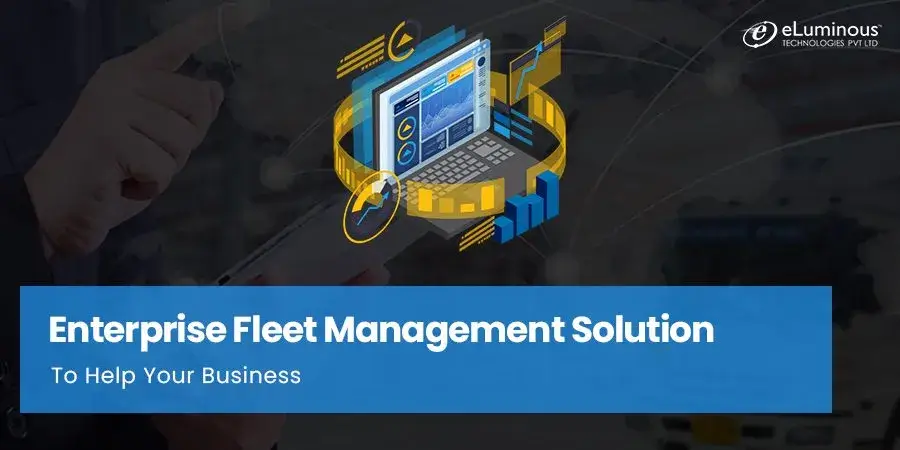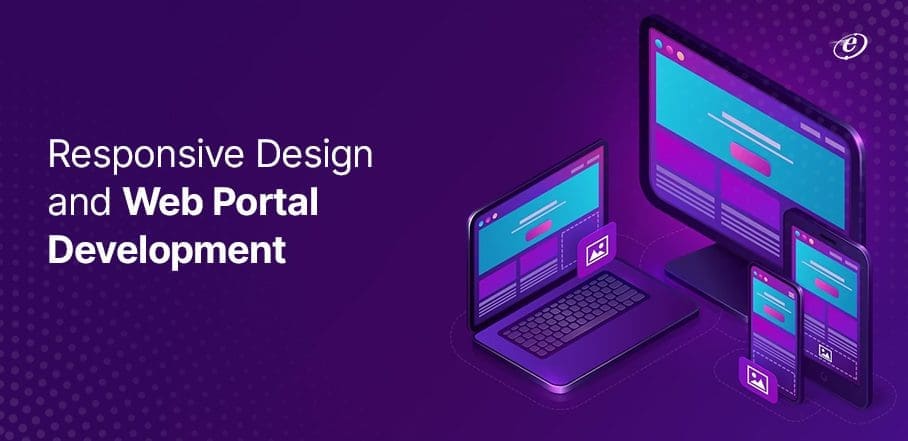
What is an Enterprise Fleet Management Solution & How it Helps Your Business?
IGT (International Gaming Technology), one of the world’s largest gaming solutions company, realized around the early 2010s that it needed a more efficient way to operate its decentralized fleet of over 1,300 technicians and vehicles that served thousands of touchpoints throughout the US. The company eventually implemented a fleet management solution in 2015 and almost immediately reported a 6% decline in fuel consumption and a massive 28% decrease in preventable accidents.
If you’re wondering how a fleet management solution can lead to these fantastic numbers, read on.
What is Enterprise Fleet Management?
Fleet management is to your vehicles what HR is to your employees. It involves managing a fleet of vehicles used by your business and handling an asset’s (vehicle) information from the time it is acquired to when it is disposed of. The latter includes but is not limited to, vehicle tracking, remote diagnostics, finance, insurance, maintenance, and managing driver behavior, health, and safety.
The fleet can include commercial cars, trucks, purpose-built vehicles, and private vehicles that are used for work purposes. Among large enterprises, the fleet may also comprise helicopters, planes, railway cars, and ships. The purpose of fleet management is to rationalize costs, improve productivity, ensure legal and regulatory compliance, and reduce associated risks.
What is the Current State of Enterprise Fleet Management?
Despite the blip caused by COVID-19, demand for fleet management IT business solutions is set for impressive growth in the next five years. A report by research firm Technavio puts the fleet management market in Europe at $13.4 billion by 2024, resulting in a CAGR of over 14% compared to the 2019 market size of $6.95 billion.
Across the Atlantic, the trend appears even stronger as, according to Report Linker, the US fleet management market will close out 2020 at $4.8 billion. The global market, similarly, will bounce back sharply from the pandemic with a size of $17.8 billion by the end of 2020.
The buoyancy in the market is not unfounded as businesses have been anticipating and preparing for disruptions to their fleet management for some time now. For instance, a TD Bank survey of fleet managers from 2019 listed emerging technologies such as electrical vehicles, alternate fuels, and autonomous driving as the biggest challenges for enterprise fleet management in 2020.
Moreover, 84% of respondents said they’re likely to change their fleet composition to match the faster and more convenient delivery demands of consumers. Overall, the survey concluded that fleet operators and enterprises are unlikely to water down their efforts to meet evolving consumer expectations, maximize efficiencies, and manage demanding delivery schedules.
Which Industries Need Enterprise Fleet Management?
Any business that uses vehicles as part of its various processes needs fleet management. However, businesses from industries such as logistics have a lot more to gain from effective fleet management than those from, say, IT services. But what’s indisputable is that any business operating a fleet of vehicles can see a tangible ROI by investing in a fleet management solution.
That said, the following industries and sectors need enterprise fleet management the most:
|
|
What are the Main Functions of Enterprise Fleet Management?
Although there are several industry-specific functions of an enterprise fleet management app, here are five of the most common ones:
1) Vehicle Tracking – It involves tracking every vehicle in the fleet via GPS systems.
2) Route Optimization – It involves using data to plan the most optimum route for each trip to reduce fuel consumption as well as the time needed for each delivery/trip.
3) Fuel Management – It involves continuous monitoring and analysis of fuel consumption and the various factors influencing it. It’s important as fuel is among the biggest expenses for fleet operators.
4) Vehicle Maintenance – It involves continuous monitoring and evaluation of a fleet vehicle’s overall health. While usual wear and tear are inevitable, regular monitoring can avoid expenses because of overuse.
5) Driver Behaviour Tracking – It involves tracking driver behavior through telematics. Continuous tracking, timely interventions, and incentive programs can drastically improve a fleet’s safety record.
What are Some Common Enterprise Fleet Management Challenges?
1) Controlling Costs
Cost control and reduction is an inherent part of running a business, regardless of which sector you operate in. Enterprise fleet management is no different and requires businesses to constantly analyze and improve various aspects of their fleet. This includes reducing vehicle acquisition and maintenance costs, lowering your monthly fuel bill, and analyzing driver behavior. The aim, as also the challenge, lies in eking out more from less.
2) Improving Asset Utilization
One of the bigger enterprise fleet management problems is to keep the dead weight in your fleet to the minimum. That’s because an underused or unused asset incurs a significant cost in the form of insurance, depreciation, and registration expenses. With an enterprise fleet management setup, you can use GPS tracking to keep tabs on the location and utilization rate of each vehicle.
3) Data Management
The larger and more diverse your fleet is, the larger and more diverse the data it generates will be. In the digital age, fleet managers will find the going tough as the sources of data increase. Moreover, the challenge lies in not just collecting this data but also organizing and analyzing it. Fleet managers often find themselves looking at a bunch of numbers that take a lot of time and effort to convert into actionable insights. You can automate the whole process by asking your app development company to create a data analytics-enabled enterprise fleet management solution.
4) Software Scalability
Enterprise fleets include thousands of vehicles and it’s not uncommon for them to quickly grow by two to three times because of rapid growth or acquisitions. For fleet managers, this leads to a compounding of existing problems, something a scalable enterprise fleet management solution helps avoid. Such a solution keeps pace with your organization’s growth by retaining its performance, security, and functionalities across different fleet sizes.
5) Managing Multi-Location Teams
Enterprise fleets are usually spread out across state or even national boundaries. Managing such a fleet involves dealing with multiple regulatory compliances, pricing practices, contractual obligations, and service and cost categories. You also have to maintain uniformity in the way in which geographically-dispersed teams manage your fleet. This calls for an enterprise fleet management system that can be customized for local factors and supports localized information access and analysis.
6) Preventing Unauthorized Asset Use
Unauthorized use of official assets can leave your business vulnerable to financial, regulatory, and legal risks. Examples of unauthorized use include using vehicles beyond work hours, out of designated areas, and for personal purposes. Several businesses also classify harsh and dangerous driving as unauthorized use since these practices can increase overheads and invite legal trouble in case of traffic violations or accidents.
All these issues can be nipped in the bud by using an enterprise fleet management software that continuously tracks your assets through GPS and telematics. While the former is self-explanatory, the latter gives you access to info such as vehicle speed, acceleration, braking, swerving, sharp turns etc. so that you can accurately judge driver behavior.
What are the Benefits of Enterprise Fleet Management?
1) Higher Productivity
An enterprise fleet management software helps you identify and reduce wastage. This further lets you allocate resources to tasks that fetch a better ROI. For instance, the software helps you understand if a particular asset is being used fully and for the right purpose. If it’s not, you can replace it with a more purpose-built vehicle and use it for a more suitable job. Similarly, the software’s route optimization feature frees up time and fuel to squeeze in more trips.
2) Better Cost Management
A digital fleet management solution lets you rationalize expenses. It helps keep the fleet’s operating costs in check through regular monitoring and analysis of fuel consumption and maintenance. Over the long term, cost savings realized from better regulatory compliance, driver behavior monitoring, and asset utilization also adds significantly to your organization’s bottom line.
3) Greater Automation
An enterprise fleet management solution automates countless processes that take up valuable work hours. From record-keeping to contract renewals, insurance filings, and reporting, your app development company can make most of the paperwork redundant with an enterprise fleet management mobile app. More importantly, process automation also takes human error out of the equation.
4) Employee Satisfaction
An enterprise fleet management app helps create a happier and more content employee pool. For example, features such as route optimization help drivers complete their trips faster and reduce anxieties due to delays. You can also manage shifts more effectively as you know exactly how much time each trip would take. Most importantly, fleet management software lets you incentivize safer driving habits through driver behavior tracking. Together, these measures instill a greater sense of ownership among your drivers and employees, leading to greater satisfaction.
5) Customer Retention
Thanks to on-time and efficient deliveries achieved via route optimization, your customers too would be satisfied. You can also add a customer login functionality to your enterprise fleet management system to let them keep track of their items till delivery. This removes the guesswork from the picture and enables your customers to plan their tasks better. These and other aspects help improve your customer retention rate since a happy customer is a retained customer.
Are You Ready to Build Your Enterprise Fleet Management?
Not long ago, enterprise fleet management was defined by vehicles and infrastructure alone. Today, however, mobile devices, GPS systems, and electronics have revolutionized the playing field. This means that if you want to maintain an edge over your competitors, investing in a modern enterprise fleet management system is a must.
As fleet management IT business solutions provider for over a decade, we’d be more than happy to answer any queries you might have about the subject. You can also contact us to know what is the cost of developing an enterprise fleet management software or to hire a dedicated developers after validating your idea for free.
Thank you for reading! If you liked this post, subscribe to our blog and get informative posts about web and mobile development, data analytics, business intelligence, and eCommerce delivered to your inbox.



